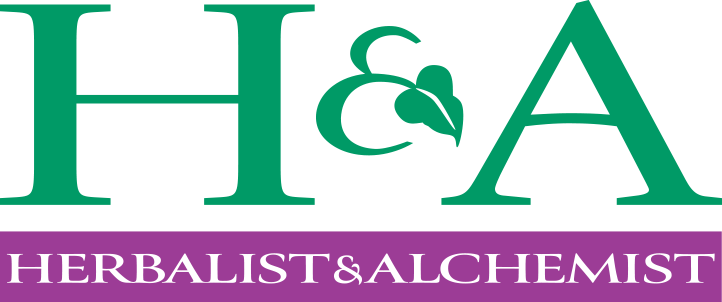How did you decide to blend being an RN with being an herbalist?
I went to nursing school to become a better herbalist. I never wanted to be a typical hospital nurse. Although, when I learned more about nursing and the nurse’s
role in health and healing, nursing and herbal/holistic medicine seemed very much aligned. I wanted to add nursing skills (nursing assessment, anatomy/physiology, understanding
lab results and pharmaceuticals, etc.) to my herbal training to offer my patients a broad spectrum of ways to intervene and understand their health situation. And to know how
best to intervene in a person-specific way, that was more than just giving a medication. I also wanted some common ground that would allow me to speak to conventional health
care providers, and nursing gave me a language to do that. I always wanted to be a bridge between modalities.
How do conventional health care providers react to your training, and has that changed over time?
Most conventional health care providers do not understand the herbal training, but they are comforted by my nursing training, and that is a place to begin to build trust.
As I mentioned above, being a nurse helps provide a language to dialogue amongst us, if I need to discuss our patients. Being a nurse gives me the credibility to explain why I'd
like them to order a lab, or give them the rationale (those few who have the time or inclination to inquire) for the program I developed for the patient. As more physicians are being
trained in integrative medicine over the past ten years, there is more interest in knowing about herbal medicine, or in recommending a qualified herbalist, or wondering where to go for
good herbal references. Most physicians still do not have the time to explore integrative medicine or add it to their practices, and are still watching with their noses pressed up
against the glass of this paradigm. But it is growing in acceptance, and there is less anxiety in their faces when I mention what I do. I am receiving frequent requests to speak
to health care professionals, am included in panel discussions, and have given lectures to medical and nursing schools on herbal medicine. This is real progress!
In your experience, is acceptance of complimentary medicine growing?
Yes, it seems that complementary medicine is growing in acceptance (or the resistance is exhausted), as we see it increasingly included in medical school curricula
throughout the country. Unfortunately, nursing school programs are lagging behind. But I see referrals from physicians growing, and a desire on the part of the more inclusive-thinking
physicians to include some aspect of integrative medicine in their guidance to their patients, even if it doesn't (yet) mention herbs.
What was it like studying with David Winston?
Working with David changed my life. He is a living library of information, and generous with sharing what he has been taught and what he has experienced. I know of no other
herbal program which can offer the scope of material that his does. Although I came into his foundation course with a good basic herbal background, his teaching gave such a comprehensive
botanical, physiological, historical and philosophical education, that I felt it compressed ten years into two. It was so much more than I expected and even knew was available. And it
helped me feel more comfortable in taking on people with increasingly more complicated health concerns. The graduate program helped to pull all the information together in a practical
way, as we composed patient formulas from class case presentations. Plus, I was not an easy student for David. I asked (too?) many questions in my effort to comprehend it all, and tie
it into what I was learning at the same time in nursing school. David patiently obliged my constantly raised hand and frequent calls.
